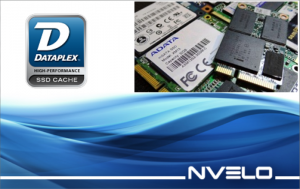According to market research firm iSuppli, caching SSD shipments are set to increase 100 fold over the next four years.
The main catalyst for this remarkable growth is the expected massive proliferation of Ultrabooks, whose presence was undeniable at this years CES.
While success isn’t guaranteed, it’s clear that the industry has high hopes for this market, and is going to do everything it can to help it thrive.
Although many of the products seen thus far have used SSDs on their own, it seems that in order to lower prices (and maybe improve profit margins), not to mention significantly increase storage capacity, Ultrabook manufacturers are expected to transition back to standard hard drives, though not entirely; the plan is to pair the magnetic storage with caching SSDs.
The rationale behind this is, of course, to offer the best of both worlds to consumers who will have access to copious amounts of high speed storage at a price far lower than what would be possible by integrating solid state storage alone.
 Intimately linked to the current state of affairs is the fact that Nvelo, a company specializing SSD caching solutions, has up to this point been the sole provider of SSD caching software in Ultrabooks already incorporating an HDD/SSD scheme. This is certainly good news for the young company, as it seems they could be headed for one major growth spurt if the situation remains as it is.
Intimately linked to the current state of affairs is the fact that Nvelo, a company specializing SSD caching solutions, has up to this point been the sole provider of SSD caching software in Ultrabooks already incorporating an HDD/SSD scheme. This is certainly good news for the young company, as it seems they could be headed for one major growth spurt if the situation remains as it is.
I do have to wonder though, how this kind of monopoly by default will affect the final pricing of products that will rely on the specialized software, with Nvelo hopefully keeping licensing fees reasonable. Far more likely, however, is that other companies will join the fray and try to secure a piece of this fresh new market.
 Another scenario could be one in which SSD manufacturers simply provide their own caching software. Being that companies like Intel, OCZ, and Samsung develop their own SSD controllers in house, it’s not too much of a stretch to consider that they have the R&D muscle to develop their own caching software as well.
Another scenario could be one in which SSD manufacturers simply provide their own caching software. Being that companies like Intel, OCZ, and Samsung develop their own SSD controllers in house, it’s not too much of a stretch to consider that they have the R&D muscle to develop their own caching software as well.
Whatever happens, it certainly seems like it’s going to be an interesting time for the SSD industry. Indeed, it looks as though the winds of change are headed our way, and if the Ultrabook segment doesn’t blow away as quickly as it came, this could end up being a very memorable year for the industry and consumers alike.
 The SSD Review The Worlds Dedicated SSD Education and Review Resource |
The SSD Review The Worlds Dedicated SSD Education and Review Resource | 